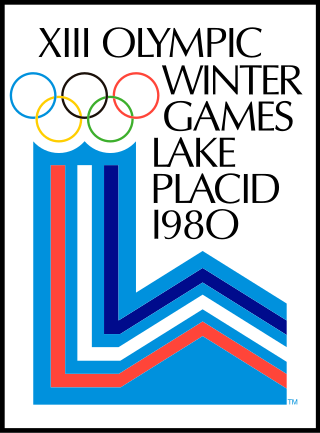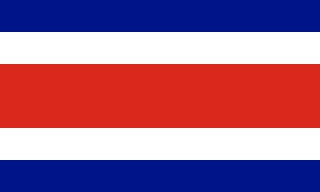
James Edmound Shea Jr. is an American skeleton racer who won the gold medal at the 2002 Winter Olympics in Salt Lake City.

Eric Arthur Heiden is an American physician and a former long track speed skater, road cyclist and track cyclist. He won an unprecedented five individual gold medals, and set four Olympic records and one world record at the 1980 Winter Olympic Games. Heiden was the most successful athlete at those Olympic Games, single-handedly winning more gold medals than all nations except for the Soviet Union (10) and East Germany (9). He is the most successful Winter Olympian from a single edition of any Winter Olympics. He delivered the Athlete's Oath at those same 1980 Games. His coach was Dianne Holum.

The 1980 Winter Olympics, officially the XIII Olympic Winter Games and also known as Lake Placid 1980, were an international multi-sport event held from February 13 to 24, 1980, in Lake Placid, New York, United States.

The 1952 Winter Olympics, officially known as the VI Olympic Winter Games and commonly known as Oslo 1952, were a winter multi-sport event held from 14 to 25 February 1952 in Oslo, the capital of Norway.

The 1932 Winter Olympics, officially known as the III Olympic Winter Games and commonly known as Lake Placid 1932, were a winter multi-sport event in the United States, held in Lake Placid, New York, United States. The games opened on February 4 and closed on February 13. It was the first time the Winter Games were held outside of Europe and the first of four Winter Olympics held in the United States; Lake Placid hosted again in 1980.
The 1980 Summer Olympics, officially known as the Games of the XXII Olympiad, were an international multi-sport event held in Moscow, Soviet Union, from 19 July to 3 August. They were the first Olympic Games to be staged in a communist nation. A total of 5,179 athletes representing 80 National Olympic Committees (NOCs) participated. This was the fewest number of participating NOCs since 1956, which included six teams making their Olympic debut at the Summer Games; Angola, Botswana, Cyprus, Laos, Mozambique, and Seychelles. The games featured 203 events in 21 sports across 27 disciplines.

The 1998 Winter Olympics, officially known as the XVIII Olympic Winter Games, was a winter multi-sport event held in Nagano, Japan, from 7 to 22 February 1998. Twenty-four nations earned medals at these Games, and fifteen won at least one gold medal; forty-eight countries left the Olympics without winning a medal. Competitors from Germany earned the highest number of gold medals (12) and the most overall medals (29). With 10 gold medals and 25 overall medals, Norway finished second in both categories. Denmark won its first – and as of 2018 only – Winter Olympics medal, while Bulgaria and the Czech Republic won their first Winter Games gold medals. Azerbaijan, Kenya, Macedonia, Uruguay, and Venezuela competed for the first time, but none of them won a medal.
The 1992 Winter Olympics, officially known as the XVI Olympic Winter Games, were a winter multi-sport event held in Albertville, France, from February 8 to 23. A total of 1,801 athletes representing 64 National Olympic Committees (NOCs) participated in 57 events from 12 different sports and disciplines. In a break from tradition, the medals were primarily made of crystal rather than metal: gold, silver, or bronze was used only on the border.
The 1988 Winter Olympics, officially known as the XV Olympic Winter Games, was a winter multi-sport event held in Calgary, Canada, from 13 to 28 February 1988. A total of 1,423 athletes representing 57 National Olympic Committees (NOCs) participated in 46 events from 10 different sports and disciplines. Five new events were contested at these Games—men's and women's Super G in alpine skiing, team events in Nordic combined and ski jumping, and women's 5000 metres in speed skating—and two events returned to the program—men's and women's combined in alpine skiing.
The 1984 Winter Olympics, officially known as the XIV Olympic Winter Games, was a winter multi-sport event held in Sarajevo, Yugoslavia, from 8 to 19 February 1984. A total of 1,272 athletes representing 49 National Olympic Committees (NOCs) participated in 39 events from 10 different sports and disciplines. First time NOCs to enter were Egypt, Monaco, Puerto Rico, Senegal, and British Virgin Islands.

The 1976 Winter Olympics, officially known as the XII Olympic Winter Games, was a winter multi-sport event held in Innsbruck, Austria, from 4 to 15 February 1976. A total of 1,123 athletes representing 37 National Olympic Committees (NOC) participated in 37 events from 10 different sports and disciplines. Two events were contested for the first time: the figure skating discipline of ice dancing, and the men's 1,000 metres in speed skating.
The 1972 Winter Olympics, officially known as the XI Olympic Winter Games, was a winter multi-sport event held in Sapporo, Japan, from 3 to 13 February 1972. A total of 1,006 athletes representing 35 National Olympic Committees (NOCs) participated in 35 events from 10 different sports and disciplines.
The 1952 Winter Olympics, officially known as the VI Olympic Winter Games, took place in Oslo, Norway, from 14 to 25 February 1952. A total of 694 athletes representing 30 National Olympic Committees (NOCs) participated in the Games, taking part in 22 events from 6 sports.

Biathlon at the 1980 Winter Olympics consisted of three biathlon events. They were held at the Lake Placid Olympic Sports Complex Cross Country Biathlon Center. This Olympic featured the debut of the 10 kilometre sprint event. The events began on 16 February and ended on 22 February 1980.
Speed skating at the 1980 Winter Olympics, was held from 9 February to 18 February. Nine events were contested at James B. Sheffield Olympic Skating Rink.

Costa Rica sent a delegation to compete at the 1980 Winter Olympics in Lake Placid, United States from 13–24 February 1980. This was Costa Rica's debut appearance at a Winter Olympic Games, after five prior appearances at Summer Olympics. The only athlete sent by the country was alpine skier Arturo Kinch. In the only event he finished, the men's downhill, he placed 41st.











